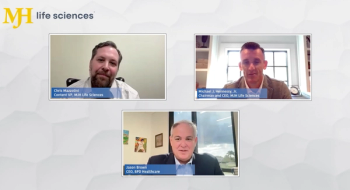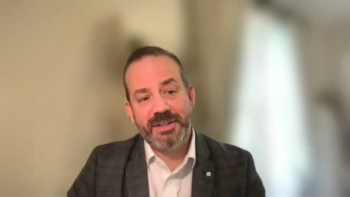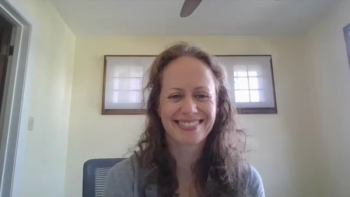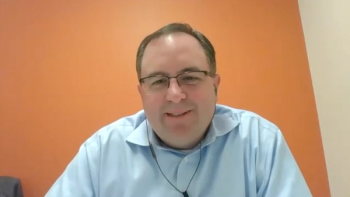
PX: How Are Outside Disruptors Failing in Healthcare?
"The point here is that if you're a disruptor, you better be solving a real problem. You don't lead with the technology first."
Just because healthcare is ripe for disruption, doesn’t mean disruption will come easy.
Just ask those who've tried it before. Some startups believe that “if you build it, they will come,” but that’s an old trope that’s quickly losing its legs. Others think they can lead with their flashy tech — but tech is just a tool, not a solution on its own. Still others think successful models from outside industries will translate to healthcare without any input from those on the inside, and are surprised when the end-users are frustrated with their piecemeal solutions.
Companies try every day to change healthcare, but nearly all of them have failed to deliver the kind change it really needs. The good news? Each new attempt uncovers a fresh detail about what successful strategies might look like in the future.
How Are Outside Disruptors Failing in Healthcare?
A Healthcare Analytics News® Peer Exchange®
Segment 8/13
Kevin R. Campbell, M.D.: You lead me to the next question for the panel. When we talk about disruption, it’s a big hype word. It’s a buzzword, and everybody wants to be a part of it, but not everyone has the talent or the ability to do that. I don’t mean people. I mean companies and organizations. When you think about this, what are the biggest challenges? What is going to be the biggest hurdle, whether you’re a start-up or Amazon? What are the things that concern you the most about failure with disruption?
Jane Sarasohn-Kahn, M.A., MHSA: President Trump said something really smart when he was trying to innovate healthcare as soon as he took office. Very shortly after, he said, “Healthcare is really hard to change. It’s complicated.” I give him props for saying that.
Geeta Nayyar, M.D., MBA: Did he Tweet that or did he say that?
Jane Sarasohn-Kahn, M.A., MHSA: He said that, and I give him props because it’s bloody complicated. I’ve been in the game for my whole life as an adviser, from hospitals all the way to new, shiny things. It’s hard to solve, and these things would have gotten solved if it were easy by now. You have all these stakeholders, who each have a pot of incentives that are quite different from the others’. You have pharmaceuticals, you have health plans, you have physicians and hospitals, you have all these new entrants, and then you have the patient, who is paying more and more out of pocket.
What’s hard for, say, Google version 1—Google Health—was that these guys did not really connect with their grandmothers or sick friends or parents of sick friends to innovate what that little EHR might have looked like for real people who were really sick. With Google version 2 now—you talked about diabetic retinopathy—we have Alphabet and Verily, and Verily is going to work with SleepScore on sleep apnea, which is just great.
John Nosta, B.A.: They just spun it out.
Jane Sarasohn-Kahn, M.A., MHSA: They did that working with ResMed, which is really exciting. It’s one of the leaders in sleep apnea. The point here is that when you are a disrupter, you better be solving a real problem. You don’t lead with the technology first. You say, “What am I going to solve?” Then you ask, “How do I skin the cat?” I think that’s really how I would advise anyone who wants to disrupt, because doctors learn through the EHR implementations. Geeta, you’re a doctor, you know that that has led to burnout and depression in physician practice.
Kevin R. Campbell, M.D.: Absolutely.
Geeta Nayyar, M.D., MBA: Which is decreased access.
Jane Sarasohn-Kahn, M.A., MHSA: Again, everybody loses. The quadruple aim falls flat.
John Nosta, B.A.: That’s why we need the robots.
Kevin R. Campbell, M.D.: I see where you’re going with the issues for Google. The guys and gals that were designing these things didn’t have that same type of connection. I think they were very smart when Google Health recruited Rob Califf, former health commissioner of the FDA, to come provide that physician side.
Jane Sarasohn-Kahn, M.A., MHSA: That’s what they learned.
Geeta Nayyar, M.D., MBA: Correct, but we also have to remember that it’s about the non—healthcare companies bringing all of the ammunition from their industry into healthcare. But you’ve got to bring the healthcare experts, right? It’s so funny, whenever we talk about patient engagement, we never have a patient at the table. We’ve built the entire EHR industry without asking one doctor before they started building.
Kevin R. Campbell, M.D.: That’s our fault as physicians, because we saw it on the sidelines and said this is never going to happen. It happened, and it cut us off at the knees. I think it’s a call to action with this disruption and this innovation that all stakeholders have to be at the table: physicians, industry, economists, tech experts. Everybody has got to be there.
Geeta Nayyar, M.D., MBA: We have to send the information, and we have to accept the invitation, the postcard, if you will.
Jane Sarasohn-Kahn, M.A., MHSA: Absolutely.
John Nosta, B.A.: Innovators do two things that really make me crazy. One is that they believe this notion of “build it and they will come”. If I create this app for people with asthma, somehow, they will come. They end up doing something that is even worse: They wink in the dark, because they just don’t know how to communicate or build in an eclectic environment. The other thing about disruption is that I think disruption is fundamental, but it’s extraordinarily problematic. Imagine you’re at a company of 100 people, and everyone is a disrupter. Nothing would get done.
Kevin R. Campbell, M.D.: You need an implementer.
John Nosta, B.A.: Again, that disruption is a punctuated phenomenon that corresponds with changes in the marketplace. Innovation is not constant, innovation is occasional, and that change drives innovation. I think it’s tricky. This whole notion of “I’m a disrupter and I want more disrupters” is a formula for disaster.
Get the best insights in healthcare analytics
Related






























